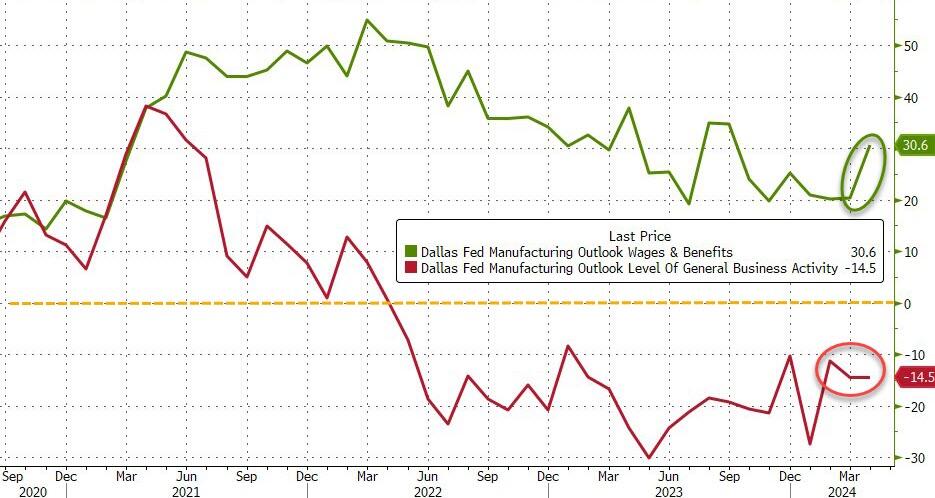Columbia University has given protesting students until 2pm to leave their encampment and sign a form committing to abide by university policies through June 30, 2025, or by their graduation. Failure to do so will disqualify students from graduating this spring, or from participating in academic and extracurricular activities, Axios reports.
"It is important for you to know that the university has already identified many students in the encampment," reads the Monday letter that was shared by Columbia Students for Justice in Palestine. "If you do not leave by 2pm, you will be suspended pending further investigation."
"Sanctions include probation, access restriction, suspension for a term or more and expulsion," reads the Monday notice - which doesn't look like it's going well.
According to the letter, talks between university leaders and student leaders at the encampment are at an impasse and the unauthorized encampment and associated disruption to the campus has created an "unwelcoming environment" which violates various school policies - including rules governing disruptive behavior and harassment.
"Please promptly gather your belongings and leave the encampment," reads the letter. "If you voluntarily leave by 2 p.m., identify yourself to a University officials, and sign the provided form where you commit to abide by all University policies through June 30, 2025, or the date of the conferral of your degree, whichever is earlier, you will be eligible to complete the semester in good standing (and will not be placed on suspension) as long as you adhere to that commitment."
Officials say they hope the protesting students will sign the form and leave by the deadline. Those who refuse will be put on disciplinary probation.
Meanwhile, things are starting to get spicy:
As the Epoch Times notes further, efforts to dismantle the encampment have failed, as university president Minouche Shafik has faced an outcry from many students, faculty, and outside observers for summoning New York City police to take down the unauthorized encampment, resulting in more than 100 arrests.
Protesters have vowed to keep their encampment unless three demands are met: divestment from Israel, transparency in Columbia’s finances, and amnesty for students and staff disciplined for taking part in the protests.
Ms. Shafik said in her Monday statement that Columbia would not divest from Israel but that the university has offered to publish a process for students to access a list of its direct investment holdings, in the interest of transparency. Columbia has also offered to make investments in health and education in Gaza. And the letter sent to protesters promises an amnesty of sorts.
She said that the campus has been roiled by divisions over the war in Gaza and, despite the fact that the school has provided space for protests and vigils that did not disrupt academic life, the encampment has gone too far.
“We must take into account the rights of all members of our community,” she wrote. “The encampment has created an unwelcoming environment for many of our Jewish students and faculty. External actors have contributed to creating a hostile environment in violation of Title VI, especially around our gates, that is unsafe for everyone—including our neighbors.”
“With classes now concluding, it represents a noisy distraction for our students studying for exams and for everyone trying to complete the academic year,” she continued, adding that Columbia would allow protests to continue on campus—by application with two-days’ notice in authorized locations—after the exam period and commencement.
“We have no intention of suppressing speech or the right to peaceful protest,” Ms. Shafik wrote, adding that the protesting students had been asked to commit to following the university’s rules, including those on the time, place, and manner of demonstrations.
“We urge those in the encampment to voluntarily disperse,” she added.
It comes as a group of 21 House Democrats criticized the “anti-Israel, anti-Jewish” encampment at Columbia in an April 29 letter to the school’s trustees.
“We, the undersigned, write to express our disappointment that, despite promises to do so, Columbia University has not yet disbanded the unauthorized and impermissible encampment of anti-Israel, anti-Jewish activists on campus,” the lawmakers
said in their letter.
“As a result of this disruption on campus, supported by some faculty members, many students have been prevented from safely attending class, the main library, and from leaving their dorm rooms in an apparent violation of Title VI of the Civil Rights Act.”
The group, led by Reps. Josh Gottheimer (D-N.J.) and Dan Goldman (D-N.Y.), is different from calls condemning the protests that have mostly come from GOP leaders. Speaker Mike Johnson (R-La.) and Republican colleagues visited the campus last week and called for Ms. Shafik to resign.
